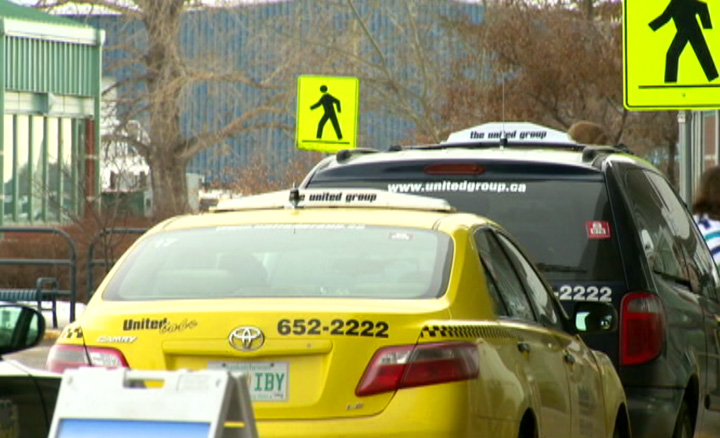It’s a hot button issue for traditional taxi drivers and it’s being backed by Saskatchewan’s premier.

On Wednesday, Brad Wall endorsed the idea of introducing ride share options like Uber or Lyft in the province to curb impaired driving.
READ MORE: Saskatchewan Taxi Cab Association proposes ‘flex-service’ taxis for Saskatoon
Shondra Boire with Saskatchewan Taxi Cab Association says she applauds the reason Wall wants to do this but is hoping the provincial government will tap the brakes on riding sharing in the province.
“We’ve seen in other jurisdictions even in Canada, London kind of racing into a decision and then finding out afterwards that they didn’t do all of the research,” Borie said.
“The impact that it put onto the local taxi company, safety issues and Uber not wanting to follow certain procedures as far as training, background safety checks.”
It’s been a slow simmering feud for months but in a province with the worst impaired driving rates in the entire country, Wall said motorists should be less likely to get behind the wheel if a sober option is available with a few taps of a smartphone.
“We simply want to have as many options as possible for people not to drive if they’ve been drinking or if they choose to drink.”
READ MORE: Drunk driving charges are the highest in Saskatchewan
As for the statistical proof showing that ride shares deter people from driving drunk, hard data is difficult to find.
“Can Uber or any of these other firms give us actual stats? No, because we don’t know how many deaths or injuries are saved, all we know is if we reduce the number of deaths we’ve accomplished something,” said Joe Hargrave, the minister responsible for SGI.
Nicole Sarauer, the Opposition NDP interim leader, said she was in favour of allowing municipalities to explore these options if it’s something they want to pursue.
“We do however want to make sure it’s properly regulated from a provincial level ensuring that both the safety of riders and of drivers is front of mind,” Sarauer added.
READ MORE: New laws aim to change culture of impaired driving in Saskatchewan
According to Saskatoon Mayor Charlie Clark, one of the barriers in the past to ride sharing has been the legislation around insurance and licensing at a provincial level leaving major cities with their hands tied.
“Our focus right now as a city will be – how do we make sure that as we considered this we learn from the policies and what’s working best in other cities in Canada and North America in order to come up with an overall set of regulations that creates as level a playing field as possible.”
So traditional taxi drivers aren’t at a disadvantage said Clark and left facing a rough ride ahead.




Comments